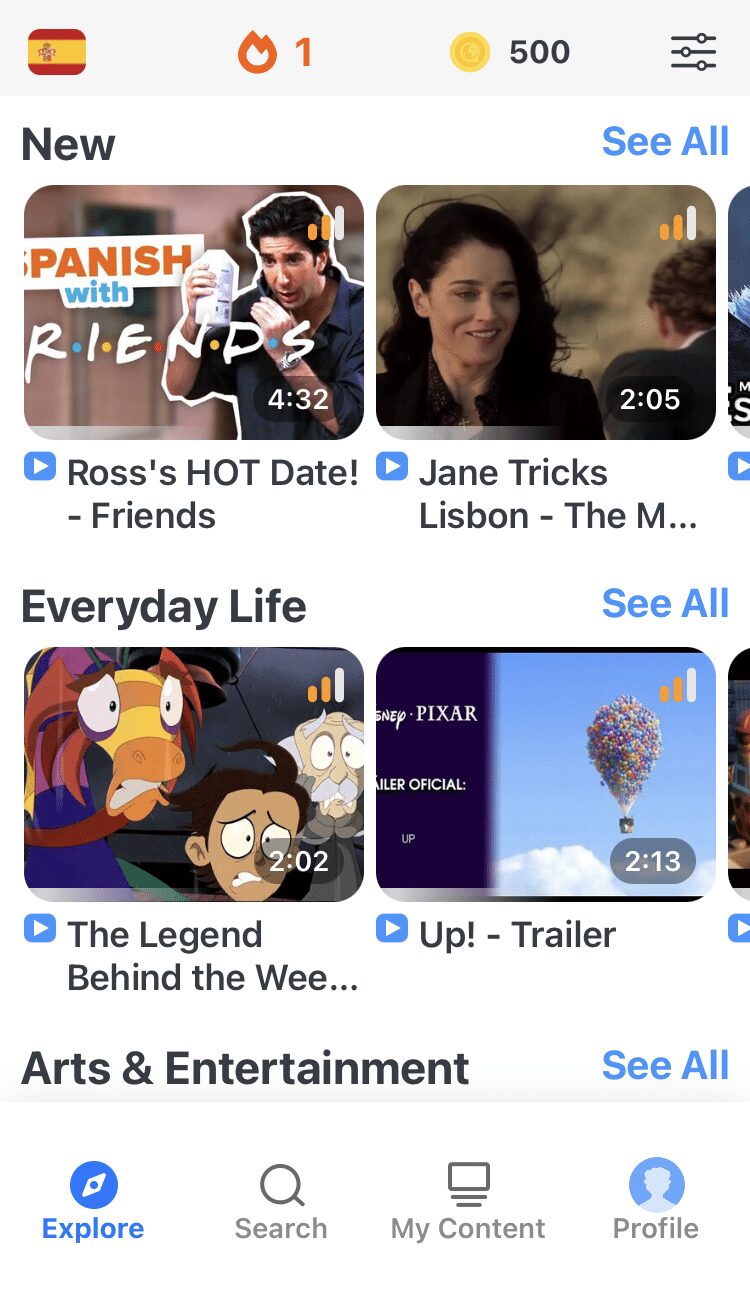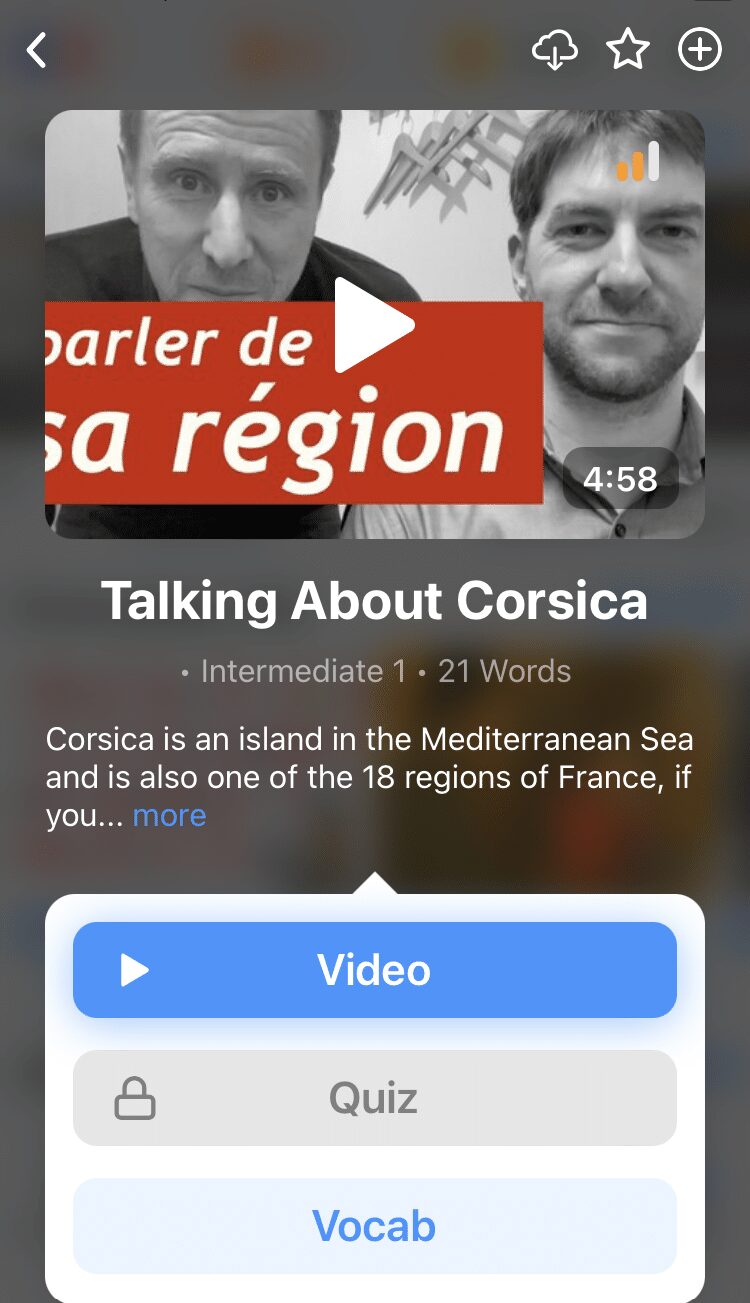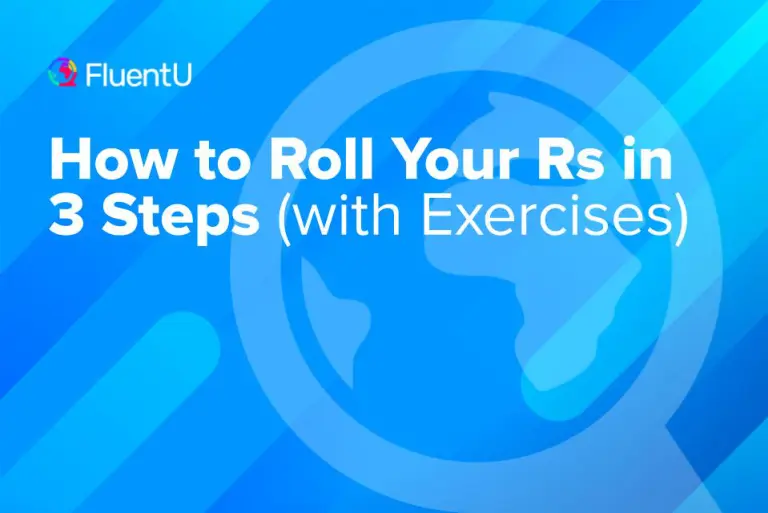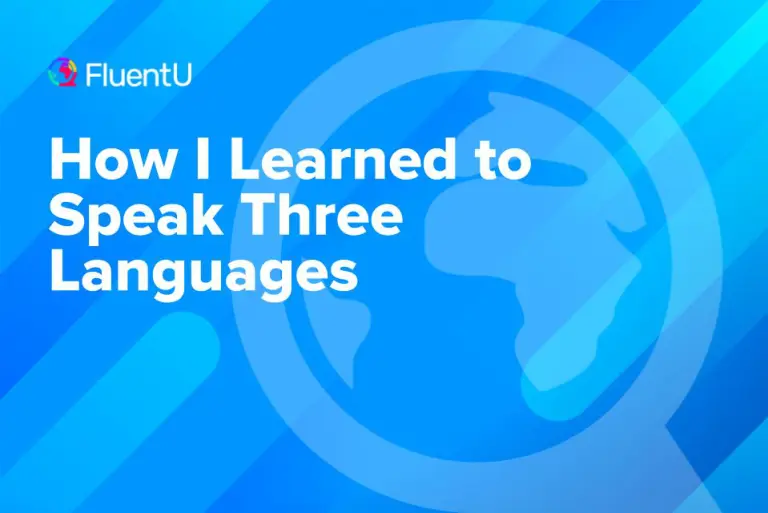Contents
- Beginner Writing Prompts
- 1. Who are you?
- 2. What are your favorite hobbies?
- 3. What’s your family like?
- 4. What’s your best friend like?
- 5. Where do you live?
- 6. What’s your favorite food?
- 7. What’s your favorite season?
- 8. What’s your favorite movie or TV show?
- 9. Describe your daily routine.
- 10. What are you going to do this weekend?
- 11. What’s your favorite animal?
- Intermediate Writing Prompts
- 12. What’s the funniest thing that has ever happened to you?
- 13. Where would you like to go on vacation?
- 14. What’s the best vacation, trip or outing you’ve ever had?
- 15. Where do you see yourself in five years?
- 16. What are your goals for the future?
- 17. What were you like as a child?
- 18. Write a poem (rhyming or not) about something that inspires you.
- 19. Pretend you’re instructing someone on how to do your favorite activity.
- 20. What’s your favorite (or your family’s favorite) tradition?
- 21. What do you think the world will be like in 50 years?
- 22. Why is education important?
- Advanced Writing Prompts
- 23. If you were given three wishes, what would you wish for?
- 24. What do you think the most significant world problem is?
- 25. If you could change one thing about society, what would you change?
- 26. How has the internet affected communication? How do you see it affecting communication in the future?
- 27. What do you think would be an ideal political system? Does an ideal system exist?
- 28. Who’s responsible for poverty? Why does it exist, and how could it be resolved?
- 29. What’s your favorite literary work, and what has it taught you?
- 30. If you could teach your future children or other children of the future one lesson, what would it be?
- 31. What medical issues have you or your loved ones faced? How did you handle them or how do you continue to handle them?
- 32. What topics are not adequately addressed in schools today? Why should these topics be addressed more?
- 33. Describe a recent world event. What are the potential consequences of this event?
- How to Get the Most Out of Writing Prompts for Language Learners
- And One More Thing...
33 Interesting Writing Prompts for Language Learners (of All Levels)

When your language teachers and tutors advise you to get more writing practice, it can be hard to follow their guidance. If your daily life isn’t action-packed, keeping a diary in your target language can get boring and repetitive, but what other topics can you discuss?
Whether you’re a beginner or an advanced learner, there are plenty of great things to write about. Here are 33 writing prompts for language learners to get you started.
Download: This blog post is available as a convenient and portable PDF that you can take anywhere. Click here to get a copy. (Download)
Beginner Writing Prompts
Beginning level students usually know basic vocabulary related to describing people, weather, food, animals, routines and related topics.
Writing as a beginning student can be a bit tricky because you don’t yet have a vast vocabulary. Additionally, your verb conjugation abilities are probably limited, so you may need to stick to the present tense.
These writing prompts can be answered with simple, general vocabulary and present tense verbs, so they’re ideal for beginning students.
1. Who are you?
You can take this question in a wide variety of directions. Based on what vocabulary you want to practice, you might describe your appearance, your job and/or your interests. If you want to try using more advanced-level vocabulary, you could try getting more philosophical with your response.
2. What are your favorite hobbies?
Everyone has something they like to do. What are your favorite hobbies? If your vocabulary is limited, you might try simple responses, like “I like sports.” However, as your vocabulary gets more advanced, you can add more detail into your response. For instance, “I like sports, especially soccer. My favorite thing about soccer is hitting the ball with my head.”
3. What’s your family like?
What do they look like? What are their personalities like? How is each person related to you? What are their interests? This prompt can be used for quick, easy writing practice or for a book-length extended project.
4. What’s your best friend like?
You can describe your friend physically, describe their personality and/or explain what you like to do together. If you already know some past tense verbs, you might even tell a story about something that happened with your friend in the past to illustrate what your friend is like.
5. Where do you live?
You could even break this one down into a series of prompts. Describe your neighborhood. Describe your city. Describe your state. Describe your country. You might discuss the layout, culture, businesses, natural environment or how you feel about your location.
6. What’s your favorite food?
Not only can you name the dish and list the ingredients, you can also describe how it tastes. As your language skills progress, you might even try explaining how the dish is made.
7. What’s your favorite season?
With this prompt, you can address a variety of subtopics. What is the weather like? What does the season look like? How does it feel? What events or holidays happen during the season?
8. What’s your favorite movie or TV show?
You can describe what happens in the movie or TV show in either past or present tense. You might also note the genre and/or describe the characters.
Major bonus points if you can describe a Netflix movie or TV show that you also watch in your target language!
9. Describe your daily routine.
Beginning students commonly learn words related to daily routines, so go through your day and explain what you do. When do you wake up? How do you get ready for work or school? What do you eat for breakfast? When do you leave for work or school? How do you get there? What do you do once you’re there? What do you eat for lunch? When do you leave? What do you eat for dinner? How do you relax in the evening?
10. What are you going to do this weekend?
This question can be a little more advanced in that you could use future tense verbs. However, if you don’t yet know future tense, depending on what your target language is, you may be able to simply use “I am going to…” constructions. Writing about your plans can help you practice words for common activities and prepare you for real conversations you may have with native speakers.
11. What’s your favorite animal?
You might describe the animal, what it looks like, what it eats, where it lives, etc. This can give you practice with animal words, physical descriptions, food words and location-related vocabulary.
Intermediate Writing Prompts
As an intermediate writer, it’s time to up your game. Now, you can use a broader range of vocabulary words and verb tenses. These prompts will help you make good use of your advancing skills.
12. What’s the funniest thing that has ever happened to you?
Whip out your past tense verbs for this one! Consider writing the story of the funniest thing you’ve experienced. Maybe it’s something that happened to you or maybe it’s just something you witnessed. Regardless, this will give you practice with more diverse vocabulary and past tense verbs.
13. Where would you like to go on vacation?
This prompt invites you to give your conditional verb tenses a workout. Where would you like to go? Why would you like to visit this location? What would you like to do there? Who would you go with?
14. What’s the best vacation, trip or outing you’ve ever had?
Describing the best out-of-the-ordinary experience you’ve had, whether a vacation or any other break from daily routine, gives you an opportunity to use plenty of past tense verbs. You might even work in some less common verbs to describe specific activities you participated in, like snorkeling or skiing. You can describe the experience, who you were with, what you did and what made it so enjoyable. Feeling nostalgic? Look at old photos if you have them and describe them in your target language.
15. Where do you see yourself in five years?
Oh, the age-old interview question! In your native language, it’s probably an uncomfortable opportunity to reflect on your goals, but in your target language, it can be a valuable way to practice using future, conditional and/or subjunctive verb tenses while also employing industry-specific vocabulary.
Plus, if you ever need to do a job interview in your target language, you’ll be happy you have the practice. If you like this prompt, you might even consider using some of The Muse’s list of common interview questions for additional writing prompts.
16. What are your goals for the future?
What do you hope to achieve in your life? You might use future tense here, but if you prefer present tense, you can use an “I want to…” or related construction. From there, you can use all sorts of vocabulary words related to your career, family, housing, etc.
17. What were you like as a child?
Use past tense to describe yourself as a child. You might describe your appearance or personality. To work in more advanced vocabulary, you might also note in what ways you challenged your parents and what you wanted to be when you grew up.
18. Write a poem (rhyming or not) about something that inspires you.
Writing poetry can be a fun way to use your language skills. To make it a little trickier, write in rhyme. You can write about whatever you like, but you can’t go wrong with a love poem. After all, you can always re-purpose it down the road if need be.
19. Pretend you’re instructing someone on how to do your favorite activity.
Whether it’s cooking, painting or playing Fortnite, this will require the use of commands and a strong vocabulary related to whatever activity you write about.
20. What’s your favorite (or your family’s favorite) tradition?
Whether they’re monthly or yearly, passed down through generations or made up on the spot, traditions shared by people can be a lot of fun. But they also afford a lot of opportunities to use whatever verb conjugations you need to practice. You can talk about your favorite tradition from the past, how you practice it today or how you hope to practice it in the future. You could even instruct readers on how to adopt your favorite tradition.
21. What do you think the world will be like in 50 years?
Think about society, culture and major world issues. How do you think everything will change and evolve? Not only can you use future tense verbs, but this prompt will give you the opportunity to use more advanced vocabulary related to science, technology, culture and/or politics. Depending on your vision, you could even expand your work into a sci-fi or dystopian novel.
22. Why is education important?
This prompt could work with either present tense or conditional verbs. However, more importantly, it invites you to use plenty of more advanced vocabulary relating to learning, careers and society. Responding to this prompt could even serve as extra motivation by reminding you why education or learning of any kind (including your language learning) is so important to you.
Advanced Writing Prompts
As an advanced student, you should be aiming to write without having to think too much. You should be able to navigate seamlessly between any verb tenses and use your large and diverse vocabulary effectively. These prompts aim to help you exercise a broad array of skills.
23. If you were given three wishes, what would you wish for?
Okay, you might not have a genie in a bottle, but what would you ask for if you did? This question invites the use of conditional tense verbs. Plus, the vocabulary you use is likely to be as diverse and varied as your dreams.
24. What do you think the most significant world problem is?
Writing about current world problems can help you use vocabulary words that are relevant today but might not be terribly common. While you could use present tense, you might also use future and/or conditional tense to examine how this issue could cause long-term consequences.
25. If you could change one thing about society, what would you change?
Take this world’s problems and turn them around! Considering what you would change about society will give you an opportunity to use conditional tense and/or commands to explain what needs to change and how.
26. How has the internet affected communication? How do you see it affecting communication in the future?
Past and future tense in one prompt? How can you resist? Not only that, this prompt invites you to use the latest technology-related words, which are super useful for advanced learners.
27. What do you think would be an ideal political system? Does an ideal system exist?
This prompt invites you to use advanced vocabulary related to politics and society. Plus, you can use it to practice the conditional tense, future tense and/or subjunctive tense verbs.
28. Who’s responsible for poverty? Why does it exist, and how could it be resolved?
This question may feel nearly impossible to answer in your native language, so it will be even more challenging in your target language. However, if you give it a try, you’ll be able to practice words related to society and politics. While you’ll probably use mostly present tense verbs, you might also work in some conditional, subjunctive, future and/or past tense.
29. What’s your favorite literary work, and what has it taught you?
Using key literary terms is often reserved for academia, so writing about your favorite literary work will certainly give your vocabulary a workout. While this will be largely in present tense, you might throw in a few other verb tenses for good measure.
30. If you could teach your future children or other children of the future one lesson, what would it be?
What’s the best lesson you’ve learned? Why do you want others to learn it? This question is complex enough that you might incorporate a huge array of verb tenses.
31. What medical issues have you or your loved ones faced? How did you handle them or how do you continue to handle them?
Medical terminology can be a little tricky, but practicing using it is useful, particularly if it relates to a medical condition you or loved ones have. Writing about medical issues and their treatments will reinforce medical vocabulary and past tense verbs. Plus, if you ever experience a medical emergency abroad, you might be relieved to have practiced relevant vocabulary.
32. What topics are not adequately addressed in schools today? Why should these topics be addressed more?
You’re educated. You know what’s up. What do you think should be covered more in schools? Addressing this issue gives you an opportunity to use education terms, present tense verbs and conditional verbs.
33. Describe a recent world event. What are the potential consequences of this event?
Not only can you use vocabulary that’s currently relevant, you can also use an array of verb tenses. Start with past tense and then transition to future, conditional and/or subjunctive tenses. Using this writing prompt can help you practice transitioning smoothly between tenses.
How to Get the Most Out of Writing Prompts for Language Learners
- Don’t just write. Read. To write well in your target language, you’ll need to also read in your target language. Luckily, there are plenty of places to read content in your target language. Project Gutenberg offers many classic works in several languages, and BBC News gives you news stories in a variety of languages.
- Write as often as possible. Writing as often as possible not only gives you the practice you need to improve your skills, it also keeps you in the habit. If you set aside a few minutes each day for your writing practice, you’re less likely to forget to do it.
- Try to use specific rules or vocabulary you’ve recently learned. Trying to use specific grammar rules and vocabulary you’ve recently learned is a terrific way to practice using your new skills. It reinforces them and makes them easier to use the next time.
- As you write, note what you’re struggling with. While you’re writing, you’ll probably notice a few hiccups. For instance, you may want a word but realize you don’t know it. Whenever you encounter one of these problems, jot it down. Then, after you write, you can go over your notes to work to resolve whatever issues you struggled with.
- Read what you’ve written and correct your own work. Once you’ve responded to a writing prompt, read over your work with a critical eye. What errors do you notice? How could you improve your writing? Going over your work gives you an opportunity to spot some errors you didn’t notice as you wrote.
- Consider having a native speaker correct your work. You might ask a friend or a tutor to read over your writing and tell you what they think. You could also consider finding a tutor through italki. Even finding someone to do a one-time check of your writing on occasion can be a huge help.
With these writing prompts for all levels, you’ll never be at a loss for words.
And, if you need more inspiration to help you fill out the above writing prompts, you could try a language learning platform such as FluentU which can help you with both conversational skills and written communication.
FluentU takes authentic videos—like music videos, movie trailers, news and inspiring talks—and turns them into personalized language learning lessons.
You can try FluentU for free for 2 weeks. Check out the website or download the iOS app or Android app.
P.S. Click here to take advantage of our current sale! (Expires at the end of this month.)
Download: This blog post is available as a convenient and portable PDF that you can take anywhere. Click here to get a copy. (Download)
And One More Thing...
If you dig the idea of learning on your own time from the comfort of your smart device with real-life authentic language content, you'll love using FluentU.
With FluentU, you'll learn real languages—as they're spoken by native speakers. FluentU has a wide variety of videos as you can see here:
FluentU has interactive captions that let you tap on any word to see an image, definition, audio and useful examples. Now native language content is within reach with interactive transcripts.
Didn't catch something? Go back and listen again. Missed a word? Hover your mouse over the subtitles to instantly view definitions.
You can learn all the vocabulary in any video with FluentU's "learn mode." Swipe left or right to see more examples for the word you’re learning.
And FluentU always keeps track of vocabulary that you’re learning. It gives you extra practice with difficult words—and reminds you when it’s time to review what you’ve learned. You get a truly personalized experience.
Start using the FluentU website on your computer or tablet or, better yet, download the FluentU app from the iTunes or Google Play store. Click here to take advantage of our current sale! (Expires at the end of this month.)











